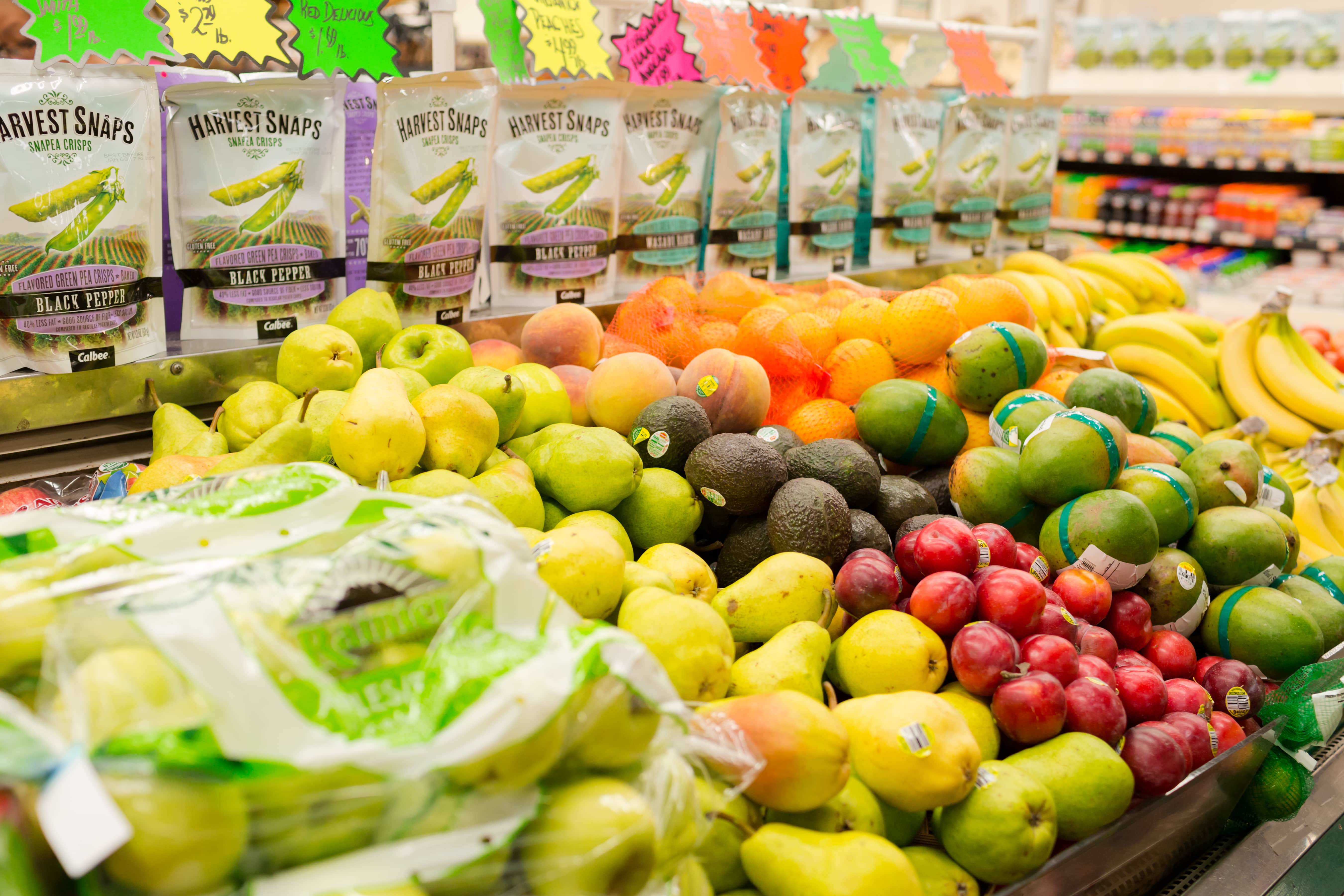It can be hard to plan ahead for meals, especially when fruits and veggies go bad quickly! That’s why we’ve compiled a list of best practices to storing produce before it gets rotten.
General Storage Tips
Don’t put fruits next to veggies. Ever heard the saying “One bad apple spoils the whole bunch”? That’s a common expression because it’s true. Fruits give off ethylene, which quickens the ripening process.
Don’t clean produce before storage. Cleaning off produce before storage will allow potential bacteria to grow from the dampness.
Keep meat away from produce. Meat can drip, so it’s generally best to keep at the bottom of your fridge, so if it does drip, it won’t contaminate your fruits and veggies.
Specific Storage Tips: Fruit
Citrus. Oranges, lemons, limes, tangerines, etc. They’re all better kept in the fridge than on the counter. Generally, they should be kept in a plastic baggie to keep them fresh longer. In fact, they can generally last somewhere around 2-3 weeks in the fridge, as long as they’re in a baggie!
Apples. Again, the old adage rings true with apples, so in order to protect your other refrigerated produce, put apples in their own bag. They can last a few weeks in the fridge, but if they’re not bagged, they might speed up the ripening process of your other groceries.
Bananas. These are best stored on the countertop, but they don’t last very long before they start their browning process. However, a browning banana isn’t ruined! They’re delicious in banana bread or even a smoothie. Just don’t let them get too brown…
Berries. Because berries are stored together, they can quickly go bad after being purchased. Some, like blackberries, can go bad in a matter of days, while others, like cranberries, last a few weeks. Overall, berries are best eaten as quickly as possible. If you do plan on holding on to them for awhile, just monitor them for any bad berries. If you find a bad berry, get rid of it so it won’t spread to the other berries.
Watermelon. Uncut watermelon can last a little over a week in the fridge, but who has space for a whole watermelon? If you don’t, you’ll have to cut it up, and that generally shortens the refrigerator shelf-life to a few days.
Specific Storage Tips: Veggies
Avocados. These last longer in a plastic baggie in the fridge. However, if you have only half of an avocado, Ziploc suggests wrapping it in a paper towel, sprinkling some lemon over it, and putting it in a plastic baggie.
Potatoes. Don’t refrigerate, but rather store in a cool, dark place. Refrigeration can mess with the starch in the potato and affects taste.
Onions. Whole onions shouldn’t be stored in the refrigerator, either. If they still have the outside layer on them, they should be stored at room temperature. The Washington Post suggests storing them in pantyhose, so if you have a spare pair, check it out!
Carrots and Celery. Cut the celery and carrots into snack sticks and store them in a plastic square tupperware in the refrigerator with some water. They’ll last for a few weeks in that way.
Lettuce. This is one of the few listed items that can’t be stored before refrigeration. If it’s in leaf-form, just wash the leaves and dry thoroughly. Finally, wrap it in paper towel and store in a plastic baggie in the fridge. Now it’s fresh and ready to use anytime you grab it out.
Get Your Fresh Cuts at Ward’s

Ward’s Supermarket sells the freshest produce in town with our naturally-sourced fruits and vegetables. We find local farmers to provide us with the most natural and fresh produce possible. Because of our short farm-to-table timeframe, there are fewer pesticides and GMO’s in our food, meaning it’s healthier and tastier!
If you’re looking for high-quality, locally sourced, delicious fruits and veggies at a reasonable price, look no further than Ward’s Supermarket! And, don’t forget to store your groceries properly to get the most out of your meals.


